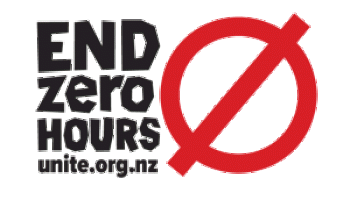Over 30 years of anarchist writing from Ireland listed under hundreds of topics
Precarity
Not Waving but Drowning: Precarity and the Working Class

In ‘Not Waving but Drowning: Precarity and the Working Class’, Mark Hoskins takes a critical look at the idea put forward by some academics and even parts of the anti-capitalist movement that the “precariat” is the revolutionary subject of our epoch. After examining the subjective conditions of the precarious subject today and comparing its objective conditions to those of the working class of the last century, he goes on to explore how these conditions relate to our end goal, a communist society and what lessons that can teach us in our attempt to get there.
Precarity: An Introduction to a Word
 Precarity is a term synonymous with precariousness. It is perhaps best conceived as chronic insecurity. In recent times with the dismantling of the welfare state, the destruction of social security, workers’ existence is becoming more and more insecure. Precarity is a term that has been developed to describe these changes and the new form of working class existence that has developed due to them.
Precarity is a term synonymous with precariousness. It is perhaps best conceived as chronic insecurity. In recent times with the dismantling of the welfare state, the destruction of social security, workers’ existence is becoming more and more insecure. Precarity is a term that has been developed to describe these changes and the new form of working class existence that has developed due to them.
McDonalds Workers in New Zealand Win May Day Victory Over Zero Hours Contracts
 Congratulations to workers at McDonalds and their union, Unite in New Zealand/Aotearoa who have won their battle with the employer and ended zero hour contracts at the fast food giant!
Congratulations to workers at McDonalds and their union, Unite in New Zealand/Aotearoa who have won their battle with the employer and ended zero hour contracts at the fast food giant!
The workers were due to strike today 1st of May, but McDonalds backed down at the last minute. From 1 October 2015, all McDonald's employees will be offered 80 per cent security of hours, up to a 32 hour weekly cap, based on the average of the previous fixed quarterly worked hours.
Living on the Breadline - A Return to the Subject of Precarious Labour.
In recent times, with the increasing influence of business interests on the state, and with the near destruction of social security, workers’ existence is becoming more and more insecure. Precarity is a term that has been developed alongside casualisation to describe the changes wrought by these and the form of working class existence that has developed because of them. Rather than the job-for-life and job security associated with such, workers’ are being coldly moulded into an acceptance of labour that rests on the whims and qualms of the bosses rather than an environment that it is within the workers‘ power to effect and change.
Focus on precarity - Ireland
Over the past year there has been an emerging preoccupation among anarchists and socialists with precarity as it’s an expression of a new work discipline imposed by neo-liberalism. Already there have been several precarity forums in European cities aimed at etching out a sense of the identities formed through the shared experience of the demands of job market flexibility.

